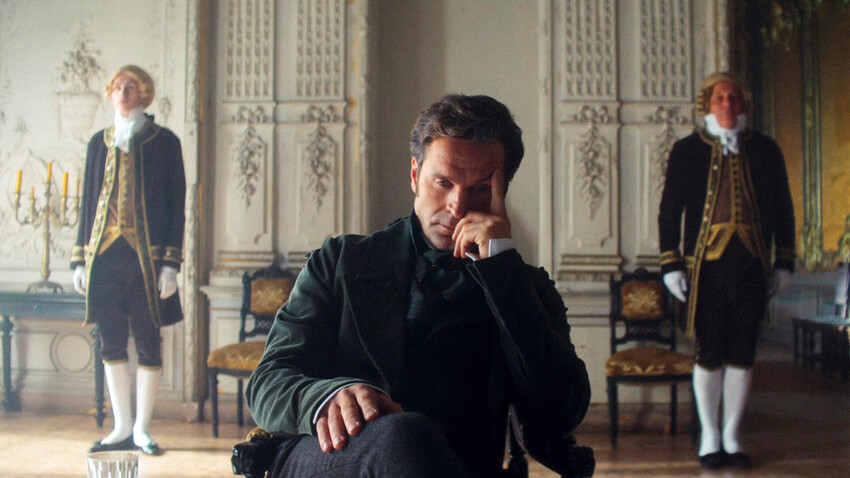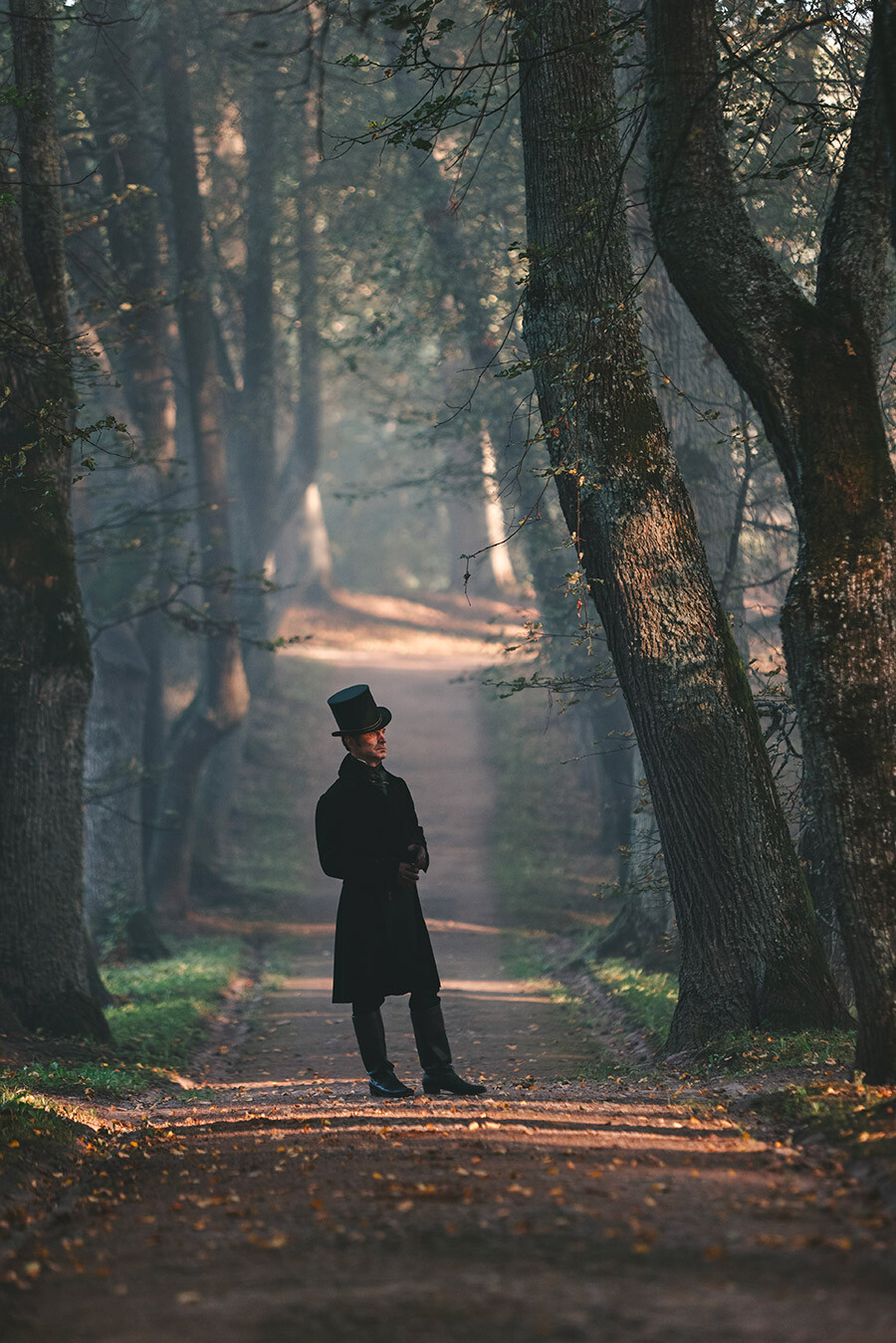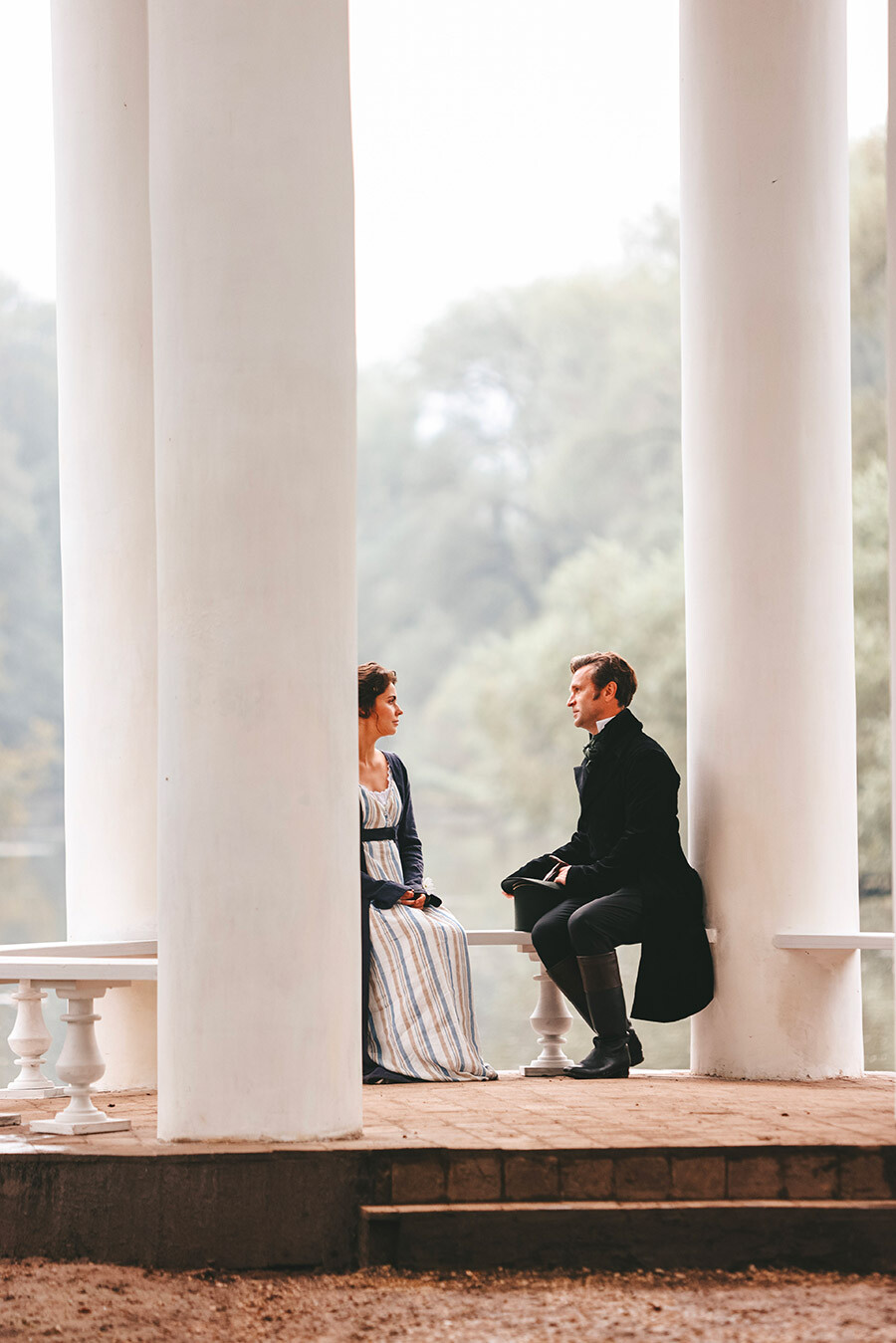
The mere fact that a new adaptation of this novel has been released is already reason enough to go see it. Unlike Leo Tolstoy’s ‘Anna Karenina’, which has appeared on the screens dozens of times, few directors are willing to take on Alexander Pushkin's great novel.
And all because it is extremely difficult for theatrical staging or screen adaptation. First of all, because it is all written in verse and any interpretation always seems to be an insult to the original text. Tchaikovsky’s opera ‘Eugene Onegin’ is more often adapted to the screen, as the verses put to music sound more organic.
In addition, the novel has a rather complex structure and composition and very multilayered content. It is not for nothing that it is dubbed "an encyclopedia of Russian life". Besides the love plot, which most often gets adapted to the screen, the text has many different philosophical digressions, descriptions of nature and the way of life, both in rural and high society. We give you five reasons to read the novel ‘Eugene Onegin’ here.

The biggest audience expectation in Russia and intrigue before the movie's release was whether the movie would feature Pushkin's actual poems. For example, they are almost entirely absent from the 1999 British adaptation starring Ralph Fiennes and Liv Tyler.
In today's world, a movie where characters would speak in verse for two hours would most likely face a commercial failure. To keep the attention of modern viewers for such a long time, reciting poetry, even Pushkin himself, is not possible.
The movie's screenwriter Alexei Gravitsky felt that the language of the 19th century novel would sound “incomprehensible to the modern ear”. Therefore, the dialogs were rewritten in prose, but using whole phrases and expressions of the original text. It turned out quite well, although, for some true Pushkin connoisseurs, it is likely to be a real challenge. Sometimes, phrases capaciously formulated by the genius poet sound extremely strange when retold and rewritten in prose.

However, the filmmakers found an elegant way to include poetry, as well. They introduced the character of the narrator (who also exists in the novel and who is actually an alter ego of Pushkin himself). And they left Pushkin's verse text for the authorial digressions of this narrator. He is invisibly present with the characters in many scenes, somewhere worrying for them father-like, while, in others explaining details or twists of the plot. The role was played by Vladimir Vdovichenkov, who recited the great poems quite well.
Two great declarations of love, Tatiana's letter to Onegin and Onegin's letter to Tatiana, were also left in verse.

Most of the movie is a retelling of the major storyline of the novel. And it is close enough to the original text as can be, with attention to detail. Onegin’s youth and his life in St. Petersburg is briefly shown, but the village chapters of the novel, the story of Eugene's meeting with Lensky and the Larins, are presented in great detail. Even a small scene, where Onegin eats oysters sprinkled with lemon in Odessa, is shown.
This way, the movie carries on a glorious Soviet tradition of big screen adaptations. In Soviet cinematography, the author's text was always treated very carefully. Sometimes, screenings were so close to the original that schoolchildren, who were preparing for exams and did not have time to read any of the many works of the great classics, would turn to these adaptations (‘A Few Days in the Life of I.I. Oblomov’, 1980; ‘War and Peace’, 1966; ‘Heart of a Dog’, 1988, to name a few).
So, those who (somehow!) have forgotten Pushkin’s plot can now refresh it by watching the new movie.

Sarik Andreasyan, the director and producer of the movie, has a controversial reputation and critics usually don't expect a deep movie from him. There are more than 20 light comedies in his portfolio, in which humor is sometimes not of the highest quality. Therefore, ‘Onegin’ had a rather prejudiced attitude from the beginning. However, the public decided to check out what kind of movie he had created and, in the first weekend, the movie topped the box offices in Russia and the CIS, earning more than 300 million rubles (approx. $3.3 million) and has become Andreasyan’s most successful movie to date.
One of the main advantages of the novel is precisely the filming locations. As some critics maliciously noted, the viewer forgave all the movie's flaws, because of the sheer beauty depicted.
The novel ‘Eugene Onegin’ is famous for detailing a diverse Russia: it describes all the seasons, describes a secular St. Petersburg, old Moscow and it abundantly tells about village life.
In the ‘Onegin’ movie, a great deal of attention was paid to the landscapes of Russia. It shows the nature of the Pskov region, those places where Onegin spent time on his uncle’s country estate and even the places where Pushkin himself worked on the novel. The Larins' House was filmed in the Petrovskoe Estate in the Pushkin Hills, which once belonged to the poet's grandfather. The author himself visited this place many times.

There are also marvelous views of St. Petersburg and the Tsarskoye Selo Palace. Some scenes were filmed in the Gatchina and Yelagin palaces. However, the creators went a bit overboard, “settling” the novel’s nobility, even if they were wealthy people, in the tsarist residences, something that never would have happened in reality. But, the atmosphere is recreated carefully.
An entire scandal broke out online in Russia and an intense debate arose about the choice of the actor for the role of Onegin. Pushkin's 26-year-old character is played by 41-year-old actor Viktor Dobronravov. And it was his age that became the main problem for critics.

However, in the novel, Pushkin describes a bored Onegin, who seems to have aged before his time, is already tired of life, as if he is already quite an old man. In this sense, an actor a little older does not seem out of place here. In addition, Dobronravov has quite an aristocratic face and look and you can see him as a nobleman from the 19th century. In addition, the actor has been playing the role of Onegin for 10 years in the stage production of ‘Eugene Onegin’ in Moscow's Vakhtangov Theater, so he’s had plenty of time to get into the role.
Many were also not happy that the 28-year-old actress Elizaveta Moryak played Tatiana Larina, who is about 17 years old at the beginning of Pushkin’s tale. However, towards the end, the heroine is already older and Moryak looks more organic then. In general, she successfully played a very serious young lady, immersed in the world of literature.
Dear readers,
Our website and social media accounts are under threat of being restricted or banned, due to the current circumstances. So, to keep up with our latest content, simply do the following:
If using any of Russia Beyond's content, partly or in full, always provide an active hyperlink to the original material.
Subscribe
to our newsletter!
Get the week's best stories straight to your inbox